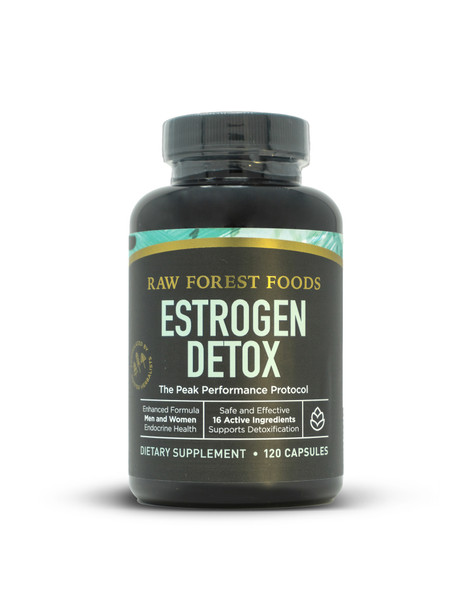Filter By
Products List
-

Forest Manna Royal Pine Pollen Tincture – RAW Pine Pollen™ – 2 and 4 Fl. Ounce Bottles
$32.99Forest Manna Royal Pine Pollen Tincture One of our first and most defining products, Forest Manna Royal Pine Pollen Tincture embodies the timeless wisdom of RAW Pine Pollen™ through a seamless amalgamation of experience, tradition, and expert... -

Forest Manna RAW Pine Pollen™ Powder – 70 Gram Jar
$29.99Forest Manna RAW Pine Pollen™ Powder Much more than simply a functional food, Forest Manna RAW Pine Pollen™ Powder provides a full spectrum of adaptogenic and tonic nutrition, delivering a complete and comprehensive profile of nutrients and... -

Peak Performance Estrogen Detox Capsules – 120 Count
$49.99At RAW Forest Foods, we recognize the critical role balanced hormones play in supporting overall health and wellness. That’s why we created Peak Performance Estrogen Detox—an expertly crafted supplement designed to aid in the safe and... -

Forest Prana Pine Pollen Extract Powder – 50:1 – 70 Gram Jar
$36.99Forest Prana Pine Pollen Extract Powder At RAW Forest Foods, we know that true wellness is rooted in forest wisdom. This philosophy inspired the creation of our Forest Prana Pine Pollen Extract Powder—the first available Pine Pollen Extract Powder... -

Lost Desert Oasis Cistanche Tubulosa Extract Powder – 50:1 – 70 Gram Jar
$36.99Lost Desert Oasis Cistanche tubulosa Extract Powder Bridging ancient wisdom and modern phytotherapy, the Lost Desert Oasis Cistanche tubulosa Extract Powder offers a connection to centuries of wellness tradition. Known for its profound ability to nourish... -

Arrow of Eros Vital Fire Aphrodisiac Elixir Tincture – 2 and 4 Fl. Ounce Bottles
$34.99Arrow of Eros Vital Fire Aphrodisiac Elixir Tincture This is the original lover’s tonic: a true Jīng-Shén elixir that transcends the act of simply blending together ingredients that are known for their aphrodisiac properties. This elixir... -

Forest Manna RAW Pine Pollen™ Capsules – 120 Count
$29.99Forest Manna RAW Pine Pollen™ Capsules Much more than simply a functional food, Forest Manna RAW Pine Pollen™ Capsules provide a full spectrum of adaptogenic and tonic nutrition, delivering a complete and comprehensive profile of nutrients... -

Tahna Prana Elevated Tongkat Ali Extract Powder – With Eurycomanone – 70 Gram Jar
$54.99Tahna Prana Elevated Tongkat Ali Extract Powder At RAW Forest Foods, we believe that creating a truly unique and beneficial Tongkat Ali extract requires more than just blending ingredients. It demands a deep understanding of its traditional Southeast...